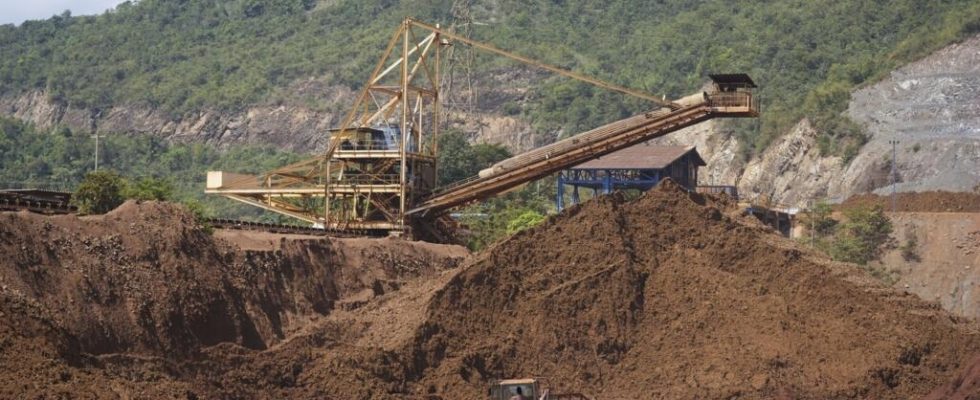In northern Guatemala, since the 2010s, the lives of the Mayan Q’eqchi people have been disrupted by the construction of hydroelectric power stations on the Cahabón River. The water diverted for these power plants is insufficient for the crops on which the communities feed, the animals that live in the rivers die. Following false accusations, Bernardo Caal Xol, who fights for the rights of his community on the river to be respected, was sentenced to seven years in prison. Released in 2021, he continues, despite threats, to defend his q’eqchi people.
5 mins
RFI: Bernardo Caal Xol hello, can you introduce us to the Mayan q’eqchi people?
Bernardo Caal : At Guatemala, we are 23 Mayan peoples, with 23 languages. I belong to one of them, the Mayan Q’eqchi people. We are more than a million people, in the north of the country: the provinces of Petén, Alta Verapaz, Baja Verapaz, Izaval and Qiché.
After four years and two years Bernardo Caal Xol could have loved his family.
Gracias a cada uno y una de ustedes por el acompañamiento que han dado en todo momento para enfrentar la criminalización que erce el Estado de Guatemala contra Defensores y Defensoras pic.twitter.com/31yPVLRYQ0— Bernardo Caal (@BernardoCaal2) March 26, 2022
You have been a teacher for 18 years. How did you begin to defend the Mayan q’eqchi people?
It was not normal to see machines moving stones, diverting a river. So we got together with all the communities, and we asked ourselves: “what is happening with the river? » We investigated, and understood that these were hydroelectric plants, six plants, that were being built on the Cahabón River. Most belonged to the Cobra ACS company of Florentino Perez, the president of the Real Madrid football club. We denounced what was happening, but recently we were told that Cobra ACS is now in the hands of a French company, Vinci.
What is important is that the French understand that Cobra ACS committed crimes against the environment in Guatemala: it deprived thousands of families of the Mayan Q’eqchi people of water, it impoverished many of these families , who had to leave for other regions of the country, and also abroad – Mexico, the United States… Because of this impoverishment, and because we could no longer grow our food, she put us in great danger. And what’s more, the beings that lived in the water – the fish, the crabs, the snails, died. These are serious crimes, which could be considered crimes against humanity.
Bernardo Caalyou were arrested and incarcerated for more than four years
We began to demand our rights – because we had not been consulted or informed. We demonstrated peacefully, and the courts suspended hydroelectric power plant licenses – which angered all the Chambers of Commerce, all the hydroelectric associations, and they launched a campaign of defamation and slander against me, which resulted in two arrest warrants.
I couldn’t escape the second, because they accused me of aggravated crime (the theft of two rolls of cables from one of the hydroelectric companies), and of illegal detention. I was sentenced to seven years in prison, I got out after four for good behavior. But the rest of the sentence is still pending, until 2027. Which is no problem for me, because I am not a criminal or a delinquent: all I do is defend the rights of my people. And what I’m doing today in Europe is denouncing unjust imprisonment, demanding that companies respect indigenous peoples, and not criminalize human rights defenders.
For thirty-six years, Guatemala has experienced a war launched by the government against indigenous communities. So it is not new for them to be persecuted by those who want to steal their land, their natural resources. 250,000 people were killed during this war. It ended in 1996 – and they stopped assassinating social leaders. But now there is a new formula: torture in prison, which I suffered. And today, many social leaders are locked up, because we demand the rights to rivers, lakes, mountains. For example, in the Mayan q’eqchi territory, in addition to hydroelectric dams, there is also a mine that belongs to Russia and Switzerland. And I could continue to cite the extraction industries, the majority of which come from Europe.
Read alsoMayors of Guatemala, El Salvador and Honduras protest mining
What are you asking, during this European tour in Spain, Belgium, the Netherlands and today in France?
It is about denouncing these injustices, making our voice heard so that European companies respect indigenous peoples, and that there is a law that drastically sanctions companies that have violated these rights. For example, if the French government, or its justice system, finds that French companies are violating human rights in any country in the world, they should be sanctioned. These laws must exist, and therefore it is important that the citizens of France or any country listen to us.
Have you noticed a change in your situation since the election last year of Bernardo Arevalo as head of Guatemala? He was elected on the promise of putting an end to corruption
Yes, but so far nothing has happened, it’s been two months. If he closes the taps of corruption even a little, it would be a lot for us, because the money of the people of Guatemala would arrive in the communities to build roads, health posts, hospitals… Successive governments in Guatemala have kept communities in total abandonment. So if Arevalo keeps his promise, it will show. But the corrupt, the bad, remain in key positions in the state, and we don’t know if they will allow him to do so.
